BASF's route towards a circular economy
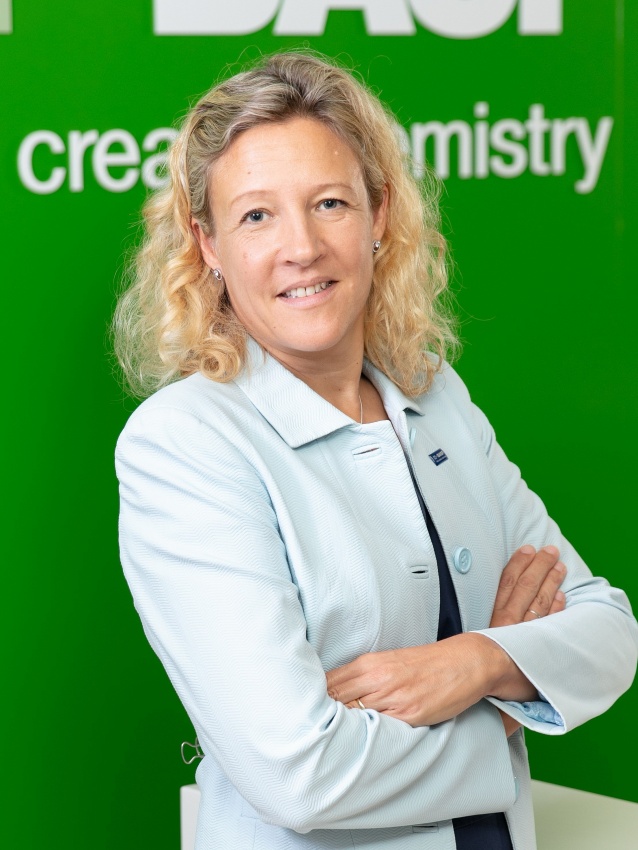 |
| Dr. Carola Richter, president of Asia-Pacific (excluding China) at BASF |
The area of the linear economy is ending because we simply cannot afford it any more. How can this be analysed further?
The industry is an essential part of the solution and requires intensifying efforts and innovation toward more sustainable materials. There are three core pillars: closing the loop with recyclable materials; extending the loop where materials enhance durability or decrease material use; and circular feedstock where materials are based on recycled or renewable raw materials.
Stakeholders nowadays are already driving the transition to a circular economy. Various players across all markets have set ambitious circular economy targets.
Vietnam’s Law on Environmental Protection, effective as of January 2021, includes Extended Producer Responsibility (EPR) to address waste and promote a circular economy. Circular economy business models grow significantly stronger than linear ones and all materials in scope; however, the highest focus is on plastics.
The circular economy is the biggest lever to solve the plastic challenge.
What is BASF implementing in the process towards a circular economy?
We are implementing a range of actions. Among those are substituting for recyclable materials consisting of new chemistry and additives for packaging. There are two examples that we can introduce: water-based grease barrier polymer and certified compostable polymer with bio-based content
In addition, we are designing shoes for circularity with single-material products that can be recycled. We optimise all base materials and processes to create all functions and design processes to recycle the shoes and maintain a high level of material quality.
For the circular feedstock, by using alternative raw materials, we can manufacture the same products in a more sustainable way To achieve this we use certified renewable raw materials with priority given to waste/residues and sustainability certification from recognised schemes.
In addition, we standardised sustainability criteria, such as CO2 emission savings, responsible biomass production, and protection of areas with high biodiversity and large carbon stocks.
Especially in renewable feedstock, BASF has a biomass balance portfolio, derived from biomass waste of agricultural production, crop or food processing or residues, and a dedicated bio-based portfolio with sustainably sourced resources, like the Vietnam’s rambutan by-products including peel, leaves, and seeds.
We are also recycling chemicals for hard-to-recycle plastic waste, turning mixed plastic waste to high-performance products.
What are the solutions for enabling a transition towards a circular economy with more sustainable materials?
We can shift the mindset to circular models and scientific discussion, use cross-value chain collaborating for solutions and standards, and support global and national certifications and regulations.
In addition, we can implement global EPR schemes and CO2 pricing mechanism, as well as setting up infrastructure and access to suitable waste streams.
You have mentioned that Vietnam plays one of the most important roles in the economic circular process, can you elaborate on this?
I think it's relevant to look at the raw materials which we want to use in the future. I have mentioned renewable raw materials. This is next to plastic waste and is another crucial level to feed the future circular economy, in order to move away from fossil fuels.
Looking at ASEAN countries, but also specifically Vietnam, I think there's a lot of opportunity just because there are so many natural materials and so much incorrect use. However, we should never compete with food. We need food first, this is most important to feed the population. But after that, there is a lot of waste that can be sources for recycling such as bio and biomass, and we should use it for other purposes – for example, for the chemical industry.
What experiences are out there to suggest for Vietnam to aid promotion in the circular economic process?
I see a lot happening in Vietnam nowadays. I was very impressed when hearing what the Vietnamese government had targeted to achieve zero carbon by 2050. This is really a good sign. This is a huge ambition and challenging but I fully agree it's a must-do. In the process toward a circular economy, we need partnerships from different sides, from governments and enterprises to every person.
My recommendation is to get more transparent on the carbon footprint in Vietnam. This means that every company should be able to report on what is scope one and scope two emissions, what they use for their own production, or create as a carbon footprint, from their own emissions and also from energy.
More important is the issue of the carbon footprint that needs more efforts, from the raw material suppliers to manufacturers, producers, distributors, and consumers. All are linked and must be transparent about their carbon footprint.
Of course, this is not easy, scientifically, to put that all together. Therefore, we should share the technology and methodology of how to do this. International companies, especially ones from Europe like ourselves, are working together to reach such sustainability targets.
Do you have any assessment of the mindset changing of the Vietnamese enterprises towards a circular economy?
Well, I think a lot has changed. I came here six years ago and sustainability was barely discussed. This did not happen in Vietnam only but all over Asia-Pacific, in my experience. Now, things are different, and many discussions now start with sustainability. More importantly, I see a lot of governments are actively taking action; non-governmental groups are pushing companies to work on it, and even populations – especially young employees – are driving their mindset toward sustainability.
And sustainability in the long term must be started at schools to train children about why we must and how to recycle waste.
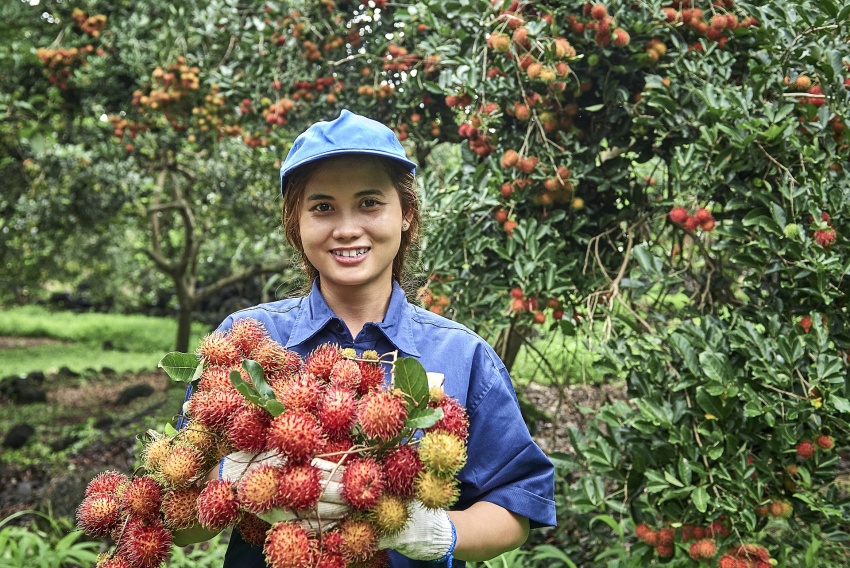 |
| BASF's rambutan programme sources bio-based personal care ingredients extracted from Vietnam’s organically certified by-products |
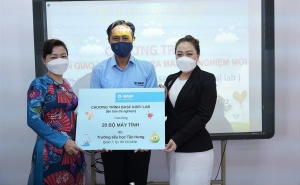 | BASF Virtual Lab offers three additional experiments in Vietnamese BASF has introduced three additional chemistry experiments in Vietnamese in its BASF Virtual Lab, an online platform that allows children to carry out a variety of activities. In total, 10 virtual lessons have now been offered to Vietnamese primary students. |
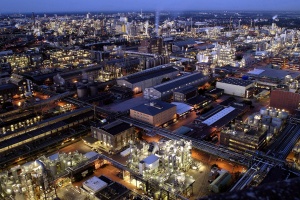 | BASF achieves strong earnings in 2021 BASF Group significantly increased its sales and earnings in the previous business year. |
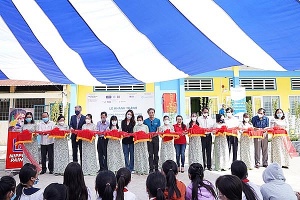 | BASF and partners rebuild sixth school On April 20, BASF and other co-sponsors initiated their sixth school renovation project at B Nhon Hung primary school. It is located in a remote area of An Giang province, nearly 300km away from Ho Chi Minh City. |
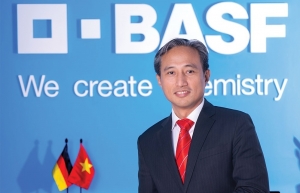 | BASF Vietnam commits to sustainable funding strategy Despite the globe’s current complications, BASF Vietnam has achieved strong business results. CEO Erick Contreras talked with VIR’s Binh An the efforts to mitigate the impact of the pandemic and the commitment to more sustainable investment in this country. |
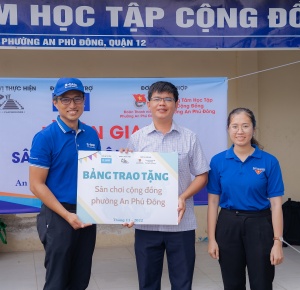 | BASF Vietnam hands over sixth public playground for children BASF Vietnam handed over a low-carbon playground to the local authorities in Ho Chi Minh City's District 12 on November 3 as a joint effort with the social enterprise Think Playgrounds. |
What the stars mean:
★ Poor ★ ★ Promising ★★★ Good ★★★★ Very good ★★★★★ Exceptional
Related Contents
Latest News
More News
- Trung Nam-Sideros River consortium wins bid for LNG venture (January 30, 2026 | 11:16)
- Vietnam moves towards market-based fuel management with E10 rollout (January 30, 2026 | 11:10)
- Envision Energy, REE Group partner on 128MW wind projects (January 30, 2026 | 10:58)
- Vingroup consults on carbon credits for electric vehicle charging network (January 28, 2026 | 11:04)
- Bac Ai Pumped Storage Hydropower Plant to enter peak construction phase (January 27, 2026 | 08:00)
- ASEAN could scale up sustainable aviation fuel by 2050 (January 24, 2026 | 10:19)
- 64,000 hectares of sea allocated for offshore wind surveys (January 22, 2026 | 20:23)
- EVN secures financing for Quang Trach II LNG power plant (January 17, 2026 | 15:55)
- PC1 teams up with DENZAI on regional wind projects (January 16, 2026 | 21:18)
- Innovation and ESG practices drive green transition in the digital era (January 16, 2026 | 16:51)

 Tag:
Tag:



















 Mobile Version
Mobile Version